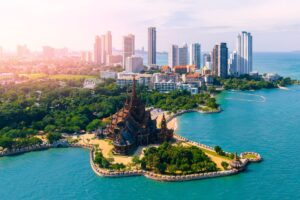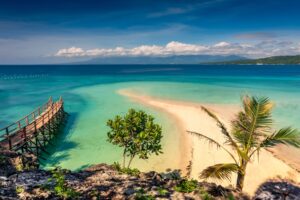Press Freedom in Central America 2024
3 min readOn World Press Freedom Day, Reporters Without Borders sheds light on the concerning state of press freedom in Central America.
The post Press Freedom in Central America Stagnated, Reporters Without Borders Warns on World Press Freedom Day appeared first on Central America.

On World Press Freedom Day, Reporters Without Borders sheds light on the state of press freedom in Central America, with stagnation or regression noted across the region.
On World Press Freedom Day, the latest info from Reporters Without Borders (RSF) casts a shadow over the state of press freedom in Central America. While Costa Rica leads the region, ranked 26th globally, RSF data reveals a concerning lack of progress across Central America since last year.
Costa Rica, Belize, Panama, El Salvador, Guatemala, and Nicaragua all find themselves grappling with stagnation or worsening conditions for journalists, according to the RSF. The only positive development comes from Honduras, which has experienced a slight improvement in press freedom since 2023, moving from 169th to 146th globally. It’s a very low bar, though, failing to mask the country’s persistently poor record. El Salvador and Panama saw the biggest rank drops over past year. This is especially disconcerting, seeing as 2024 is an election year in both countries.
🔴 #RSFIndex | RSF unveils the 2024 World Press Freedom Index
1: Norway🇳🇴
2: Denmark🇩🇰
3: Sweden🇸🇪
10: Germany🇩🇪
21: France🇫🇷
55: United States🇺🇸
101: Israel🇮🇱
162: Russia🇷🇺
172: China🇨🇳
178: Afghanistan🇦🇫
179: Syria🇸🇾
180: Eritrea🇪🇷https://t.co/fdZ3RWSFjN pic.twitter.com/y30fUGVUQ2— RSF (@RSF_inter) May 3, 2024
2024 Press Freedom Rankings in Central America:
- Costa Rica (26th in world – down from 23rd): Ranked “satisfactory”
- Belize (54th in world – down from 51st): Ranked “problematic”
- Panama (83rd in world – down from 69th): Ranked “problematic”
- El Salvador (133rd in world – down from 115th): Ranked “difficult”
- Guatemala (138th in world – down from 127th): Ranked “difficult”
- Honduras (146th in world – up from 169th): Ranked “very serious”
- Nicaragua (163rd in world – down from 158th): Ranked “very serious”
According to RSF, several key factors contribute to the stagnation of press freedom in Central America. Political hostility towards investigative journalism (prevalent in El Salvador), disinformation campaigns aimed at discrediting the media (Panama), and threats of legal action and violence against journalists are cited as significant challenges. Guatemala is a typical example, where the criminalization of journalists and the imprisonment of Jose Rubén Zamora underscore the perilous environment many journalists face in the region.
For #WorldPressFreedomDay, @jczamora, son of Guatemalan #journalist José Rubén Zamora shared the following quote on his father’s continued incarceration. @chr_aba published a report on his trial, concluding that his prosecution was an “abuse of process”.➡️https://t.co/HgfvJQnBAi pic.twitter.com/ho205k8Wuu
— ABA Rule of Law (@ABARuleofLaw) May 3, 2024
Looking Ahead
Looking ahead, RSF emphasizes the importance of Central American governments taking decisive action to foster a more conducive environment for investigative journalism. This includes refraining from hostile rhetoric against journalists, combating disinformation through media literacy initiatives, and ensuring the safety and protection of journalists.
As we celebrate World Press Freedom Day, the situation in Central America serves as a reminder of the importance of a free press in upholding democracy and ensuring transparency and accountability.
Discover more from Slow Travel News
Subscribe to get the latest posts sent to your email.



